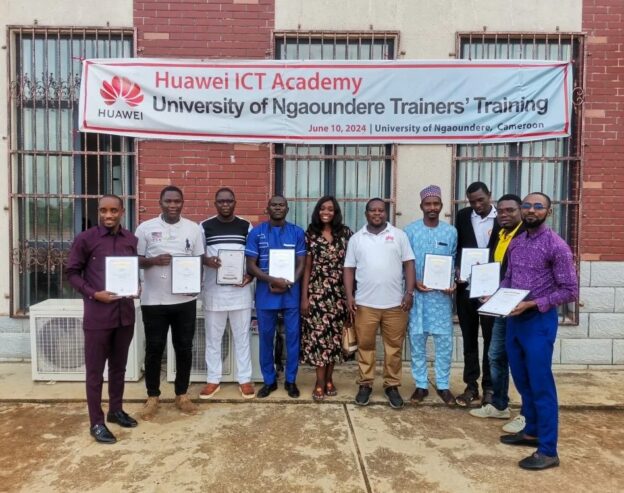As part of activities to mark World Refugee Day on June 20, Plan International alongside some five international organizations with impactful programs in Cameroon have jointly organized a media corner on Friday, June 21, 2024.

Saya, 16 is a refugee from the Central African Republic(CAR). She lives in the Elig-Edzoa neighborhood of Yaounde, in a popular area known as “oyack rails”- a slumpy area that shelters in majority people from the CAR and Chad.
The young girl who has been in Cameroon for the past 8 years with her family (mother and brothers), said they fled their home country due to conflicts and settled in Garoua-Boulai, East region before moving to Yaounde, the nation’s capital city.
Just like many refugees who face numerous livelihood challenges, she and her family have been welcomed by their community and accommodated in “oyack rails” where they equally do some petty jobs to survive.
Thanks to endurance, courage, and resilience, Saya and her family have coped to survive in precarious conditions. She expressed the will to return to school with the savings made so far through the sale of groundnuts in the streets of Yaounde.
The story of Saya is that of thousands of refugees who seek better livelihoods (food, shelter, protection, water, education, health care, and jobs) in the countries where they have settled.
Binding forces to uplift challenges
To address this growing concern, Plan International Cameroon, the Danish Refugee Council (DRC), CARE Cameroon, Catholic Relief Services (CRS), Action Against Hunger/ “Action Contre la Faim”, and the Norwegian Refugee Council (NRC) have jointly organized a media corner coupled to a photo exhibition as part of series of activities to mark World Refugee Day 2024.
The event that took place on Friday, 21st of June 2024, in Bastos, Yaounde at the head office of Plan International Cameroon, focused on the importance of protecting and assisting refugees and Internally Displaced Persons(IDPs).
During discussions that were coordinated by all six (06) international organizations, it was disclosed that the situation of refugees has not been rosy. Many live in a context of vulnerability that has been accelerated by the current crises that cripple some regions of Cameroon.
As raised by the experts on the panel, one challenging issue that needs to be curbed concerning the status of refugees in Cameroon is that of civil documentation. Many refugees do not have official identification documents notably birth certificates which is a real thorn in government’s actions and the development of the country.
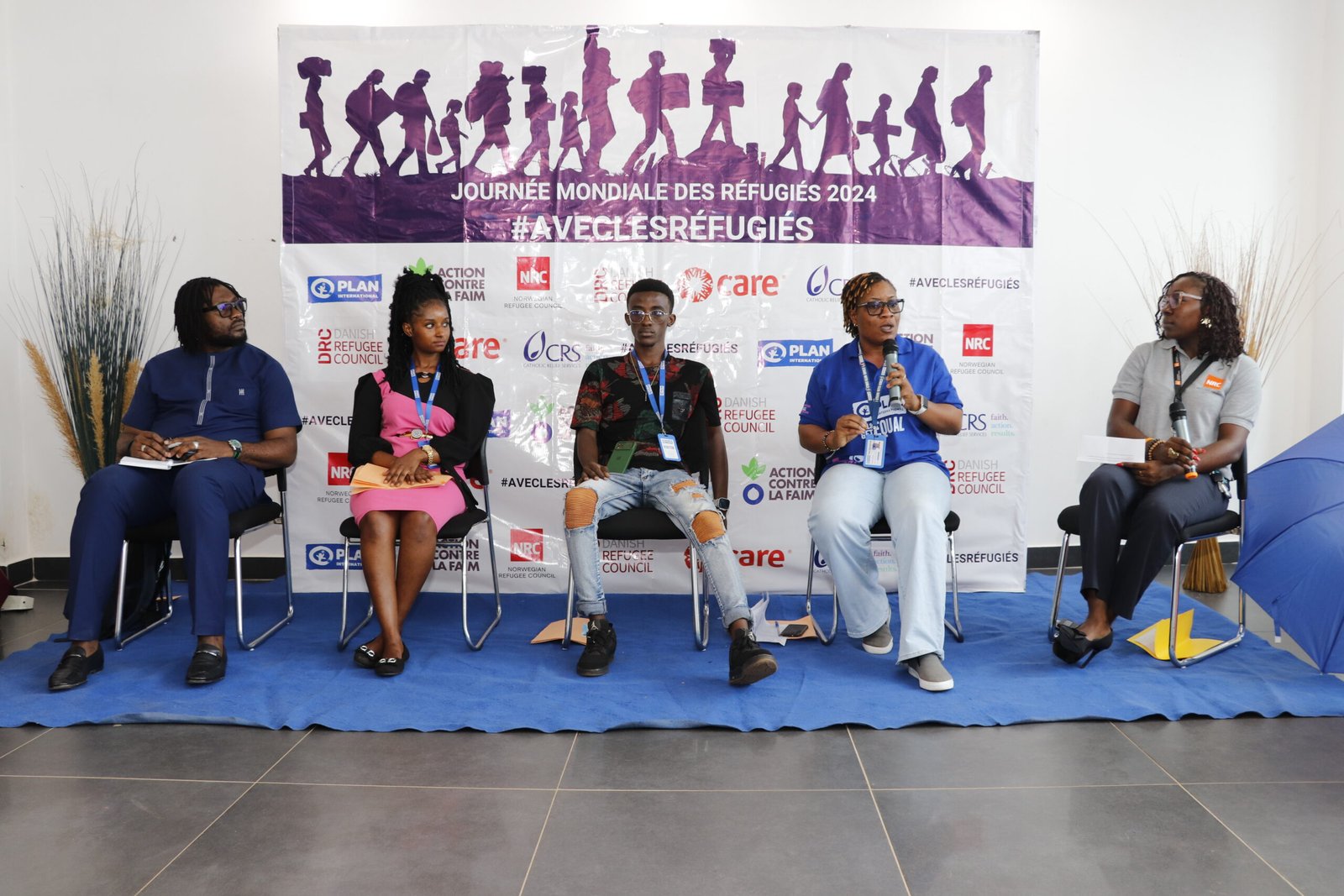
Reflections were equally on how to improve the living conditions of refugees with no status. How to register them and facilitate their social reinsertion. The state of thousands of refugees are still questionable.
Meeting the unmet needs of refugees requires a lot of funding that is at least $103.5 million, as stated in the 2024 Humanitarian Response Plan.
Promoting Equal Rights for All
Observed every June 20, the 2024 edition of World Refugee Day was placed under the theme: “Solidarity with Refugees”. The theme chosen this year focused on the importance of building inclusive health systems and ensuring equitable care for refugees worldwide.
Speaking on behalf of the Country Director of Plan International Cameroon, Mrs. Yenji Mairou, Director of Programs spelt out the commitment of their organization which advances the rights of children and girls who are part of these refugees’ communities.
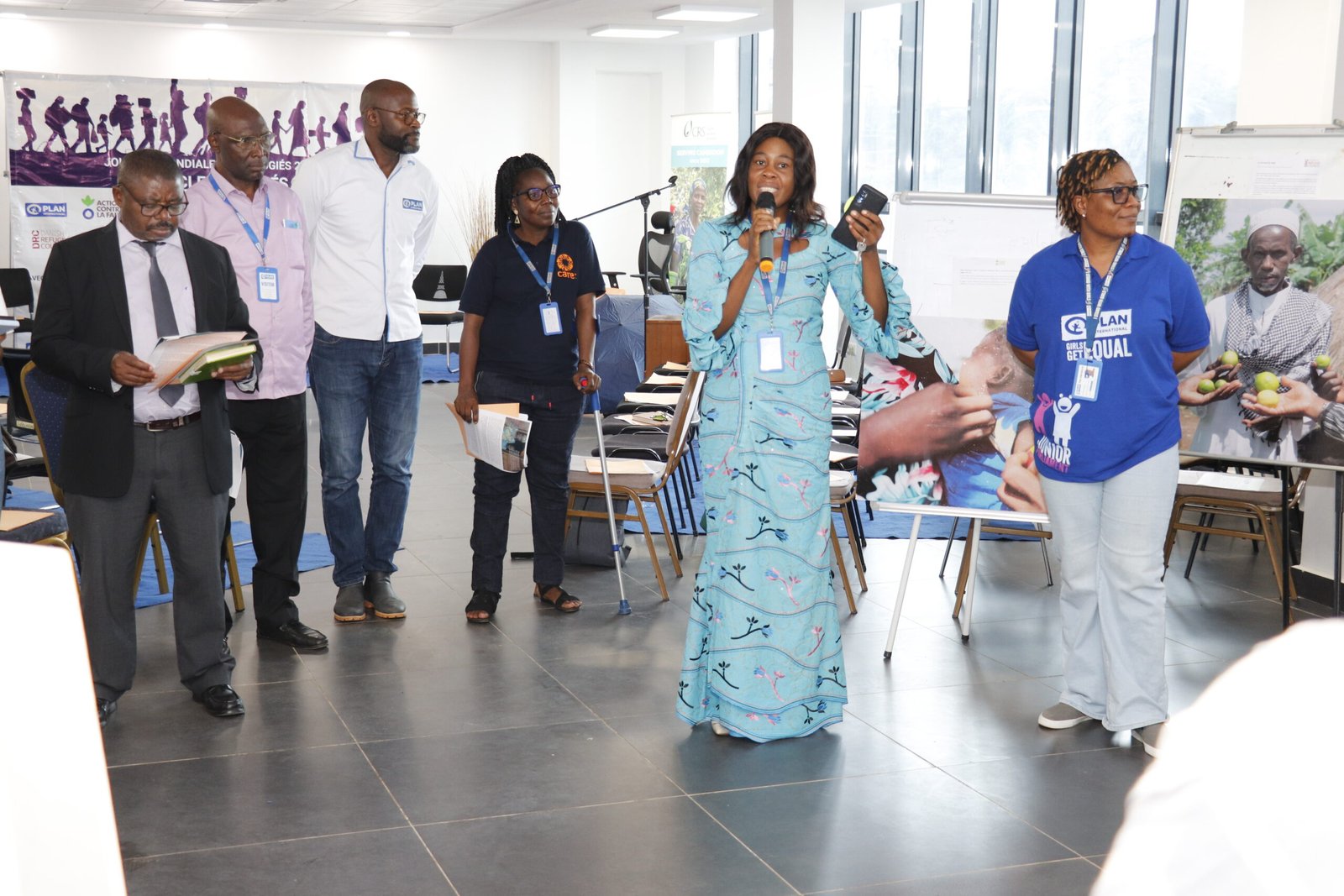
“The vision of Plan International is to advance the rights of children and equality for girls. And when we talk of children and girls we talk of all children, irrespective of their age, their color, their sex, and their race where they are coming from. Looking again at our priority, which is scaling up our humanitarian impact, it implies we need to support these refugees wherever they are found. So, we are basically working with the refugees because when we look at the rights of the child it applies to everyone with no exclusion…” Mrs. Yenji Mairou indicated.
The Director of Programs said just like other humanitarian organizations, Plan International stands in solidarity with the refugees. The situation in which many refugees find themselves is not voluntary and therefore calls for concern.
She said: “It is everyone’s business. We, the international organizations, and equally you, the media persons, need to amplify the message. We need to send the messages to the communities where we cannot reach so that the refugees know there are people ready to always give them the support needed.”
Doris Akungha Yong, Gender specialist working with Plan International Cameroon laid emphasis on basic amenities and opportunities that are offered to refugees with the support of the government as well as financial and technical partners.
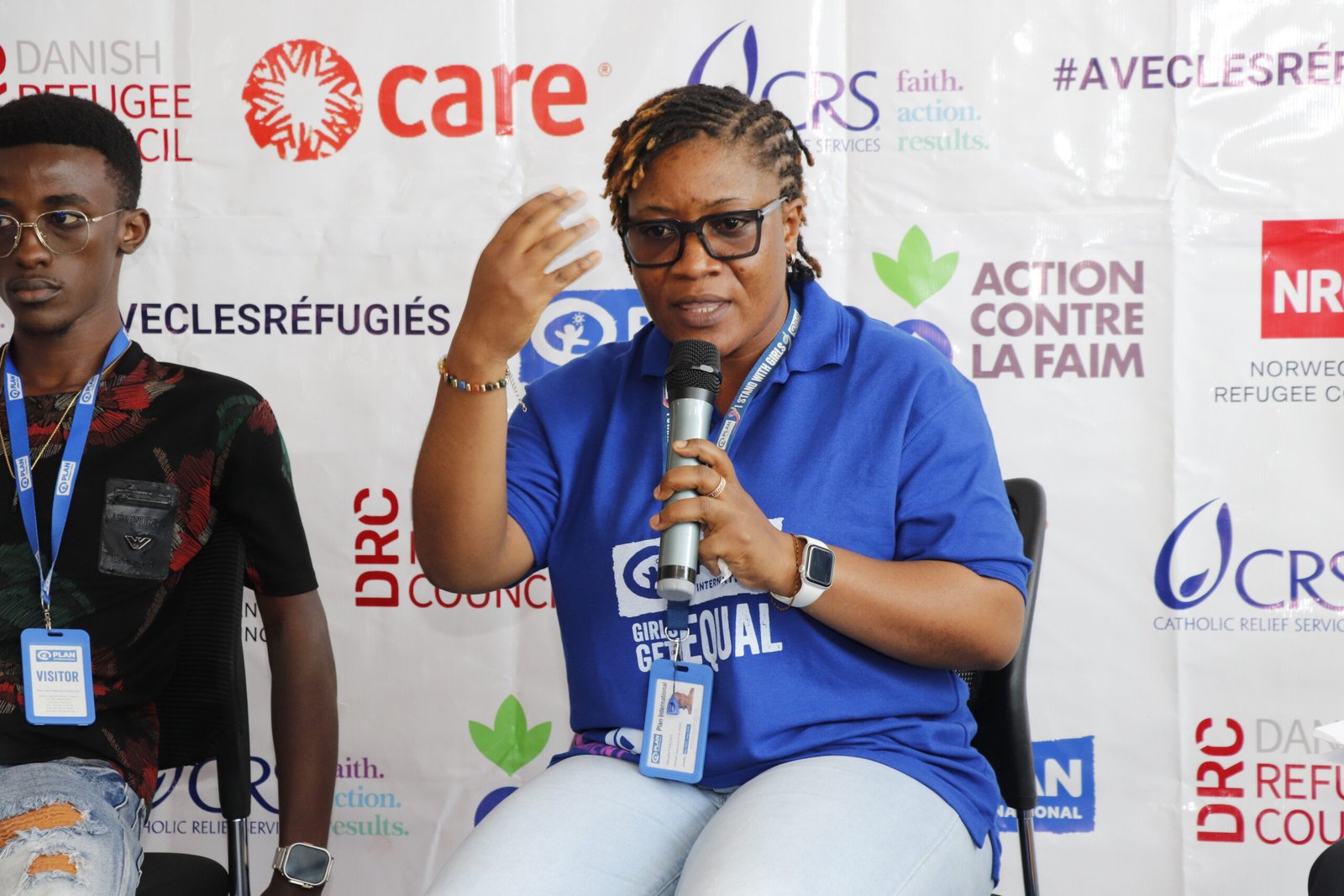
“When we say solidarity with refugees, it means that we have to create a welcoming environment and we have to be humane with refugees. As of now in Cameroon, we are more concerned because approximately 52% of refugees are women and girls. They are the most vulnerable and they are exposed to sexual and physical abuse because they are women and are the weaker sex. When refugees come into a country like Cameroon, we must ensure that they are safe and can access services that will make them strive equally in the communities. That is the reason why together with the government and under the Universal Health Coverage(UHC), there is a support system to assist most of these vulnerable women and girls as well as men. For instance, many women and girls who run away from conflicts while being pregnant are assisted with antenatal care and free delivery to ensure that they are also dignified in communities…”
She added: “Equally when it comes to education, we encourage more girls to go to school. There are scholarship programs put in place to enroll children and young people in public schools. This is the case with programs jointly set up with the United Nations High Commission for Refugees (UNHCR).”
In an exchange with media practitioners, Mrs. Akungha Yong Doris underscored the need to have a refugee card as most refugees tend to ignore this precious document that grants them access to several free services.
“We do a lot of sensitizations and awareness campaigns on the need to have a refugee card. The refugee card gives access to many services put at the disposal of refugees. We equally educate the community through their women-led group. There is a president who will be in place to coordinate the activities of all women within the refugee community, and through this group, we work with them on salient topics such as Gender Based Violence (GBV). How can they report cases? What are GBV and Sexual Based Violence and what are the available services we offer? We ensure that women are equally safe from all sorts of violence.” She narrated.
Joint Recommendations
In a joint advocacy note committed by the Danish Refugee Council (DRC), CARE Cameroon, Catholic Relief Services (CRS), Plan International, Action Against Hunger also known as “Action Contre la Faim” and the Norwegian Refugee Council (NRC), the are some key recommendations that were outlined. These international organizations are calling on:
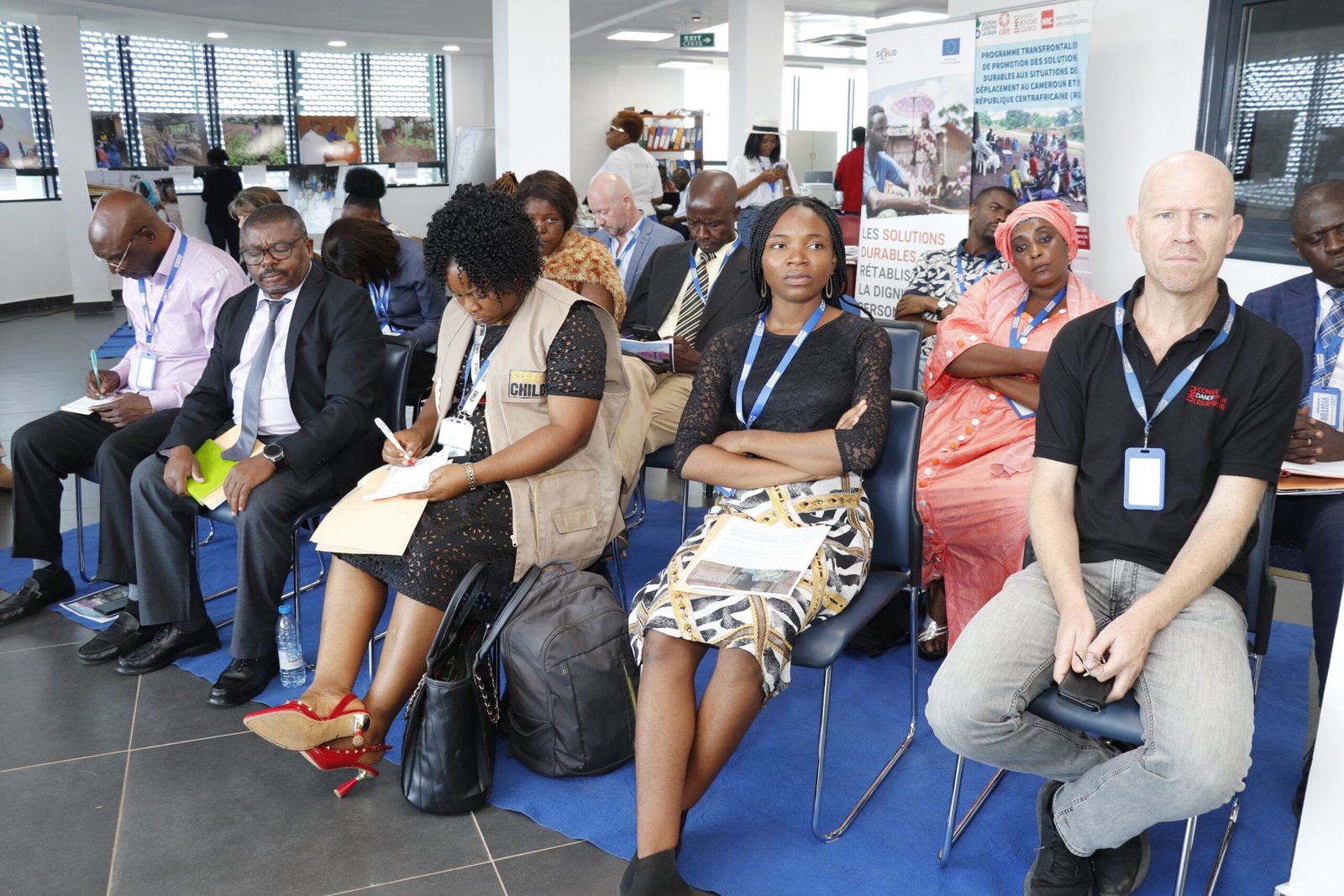
1- The international community to increase its support for legal aid to refugees and strengthen their access to civil documentation. This includes supporting the Government in increasing the capacity of the National Bureau of Civil Status (BUNEC) capacity to provide birth certificates to refugee children born in Cameroon by opening and staffing new offices in refugee-hosting areas.;
2- Humanitarian donors to recognize and support the integration of HLP emergency responses from the onset. This includes supporting advocacy efforts to improve access to HLP rights for conflict-affected populations in emergency contexts and increasing overall funding to the HLP sector;
3- The government should implement concrete actions to ensure the right to durable solutions both for refugees and Internally Displaced Persons, by respecting commitments of international and regional conventions including the Kampala Convention and the Yaoundé Declaration;
4- The government to ensure that all civil status centers are well-equipped to provide timely and quality services, especially in crises, in line with the African Charter on Statistics and the Strategy for the Harmonization of Statistics in Africa (SHaSA);
5- Donors should increase their multiyear financing for refugee response in Cameroon, in alignment with World Bank efforts to invest in longer-term solutions.
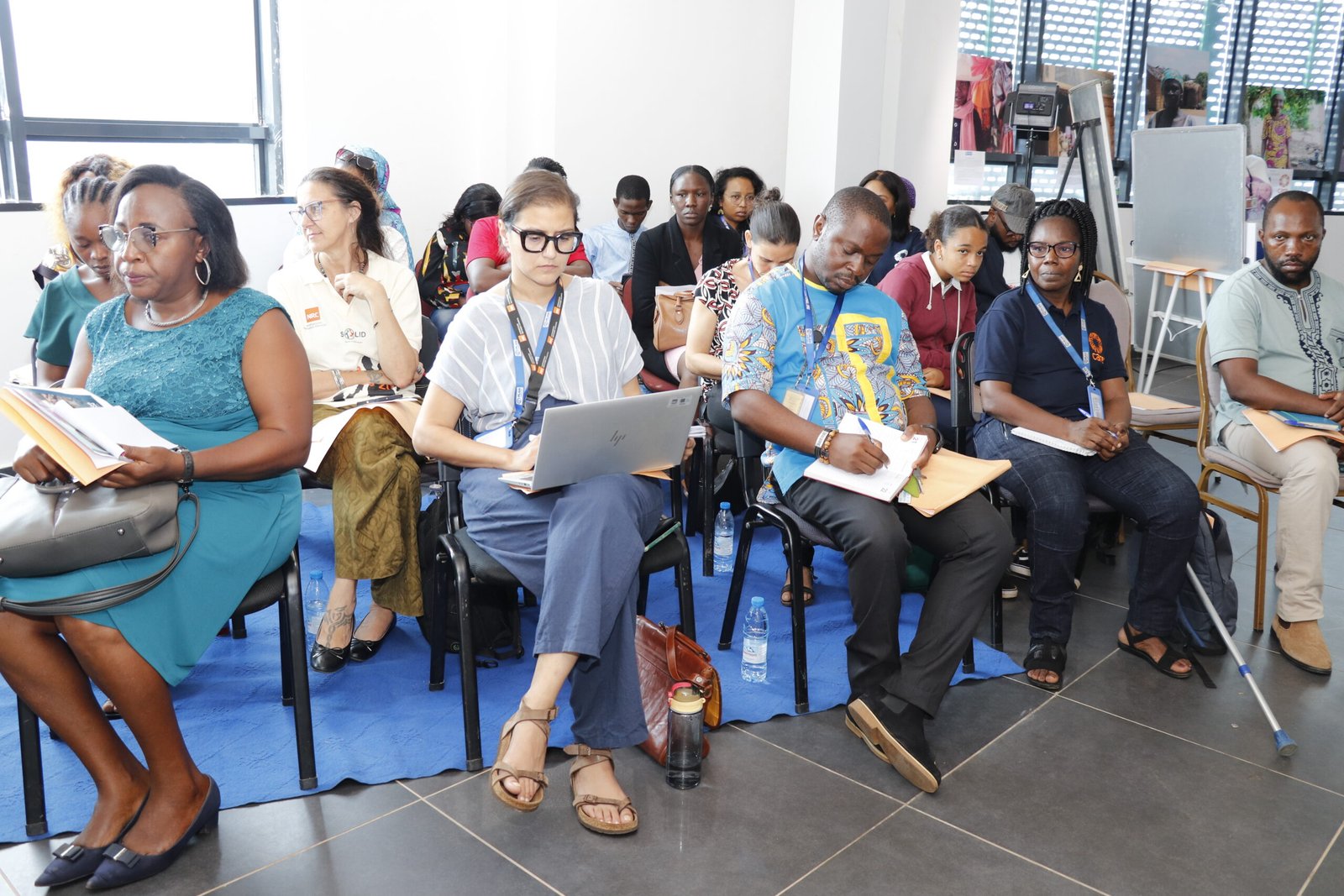
According to UNHCR, as of April 2024, 476,735 refugees are living in Cameroon. About three-quarters of refugees who fled from the Central African Republic found refuge in the bordering East region of Cameroon, after the explosion of violence in 2013.
Most of the other refugees in Cameroon are Nigerians displaced by Boko Haram militant attacks, with the majority living in the Minawao refugee camp in the Far North region of the country.
The Minawao refugee camp was built for 15.000 refugees but is now home to more than 70.000. Yet, figures are on the rise due to natural population growth, new arrivals from Nigeria in the Far North, and from Chad in the East.
Elise Kenimbeni



